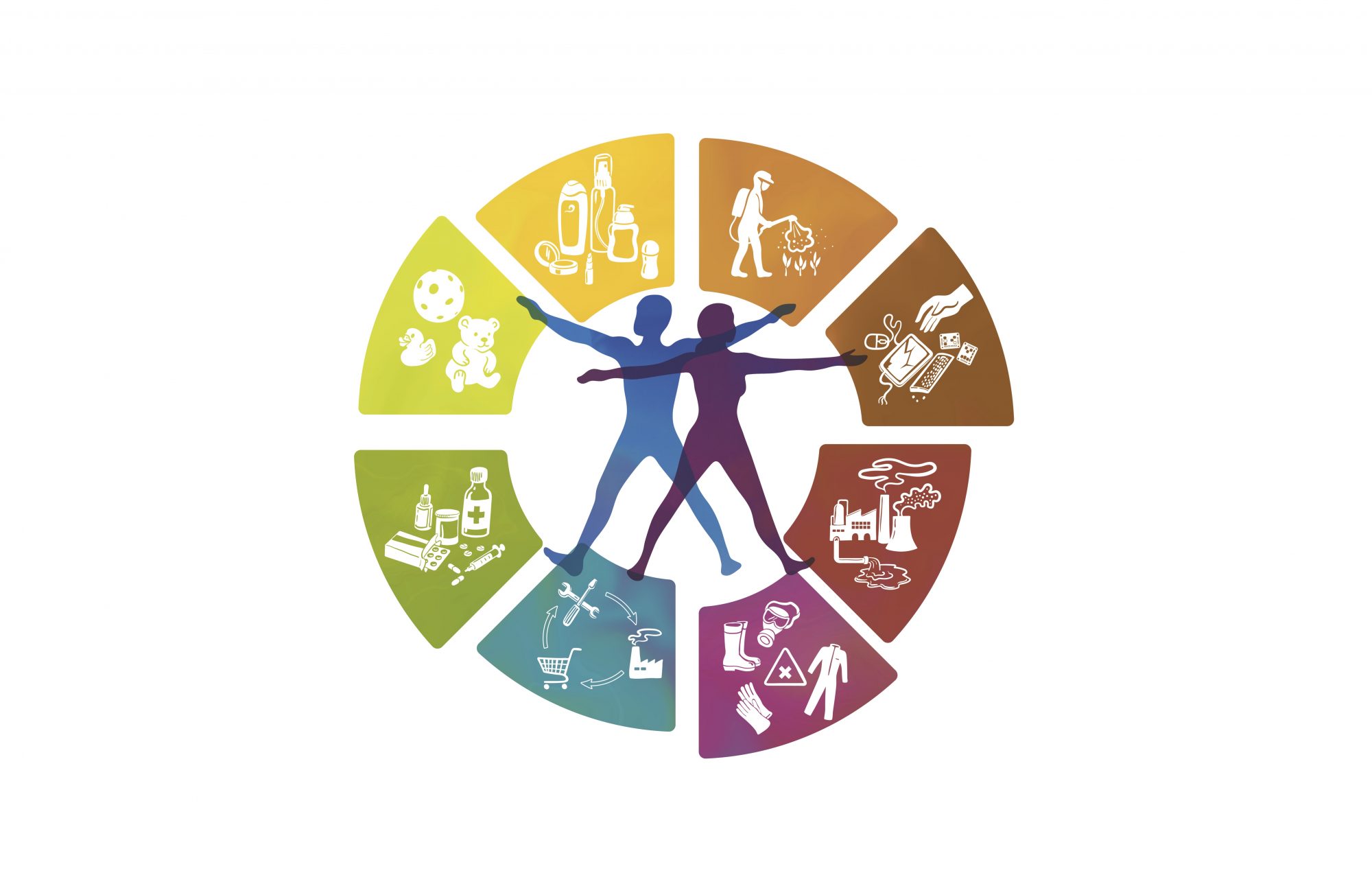“Healthy [environment] [planet], healthy people!” – This is the vision with the most support for a new international framework on chemicals and waste management beyond 2020.
And we agree: this vision can be a strong statement for the future.
Health is defined as “a state of complete physical, mental and social well-being and not merely the absence of disease or infirmity” (WHO 2006). We all know that this is not the case for everyone around the world, nor for our planet. One reason are massive gender inequalities, manifest in every dimension of sustainable development. The 2030 Agenda for Sustainable Development recognizes that gender equality is central to this transformative vision as an important goal in itself and as a catalyst for progress across the entire Agenda (UN 2015). Therefore, it is crucial to integrate a gender perspective into the implementation and monitoring of all the Sustainable Development Goals and UN Institutions working on them (UN Women 2018) – including in chemicals policies.
In short, there are three main reasons why gender is an issue for chemicals policy:
- Gender, as a social category, is linked to gender-specific norms of behaviour, roles in society as well as the development of ‘feminine’ and ‘masculine’ identities, which in turn influence people’s behaviour, including their impact on the environment, their affectedness by environmental degradation, and their access to and power over resources.
- Gender, as a biological category, shows that women’s and men’s bodies are affected differently by certain chemicals – exposure, risk, and impacts can be different between the sexes.
- Gender analysis allows to ask questions that help us understand and unpack root causes of unsustainable behaviour and societies, and hence have a transformational potential. We need to tap into this potential in order to bring about sustainable development, justice and peace.
SAICM has an agreed Overarching Policy Strategy (OPS) that sets out the scope, needs, objectives, financial considerations underlying principles and approaches, and implementation and review arrangements of SAICM as a platform and process. The OPS underlines the specific importance of women as stakeholders and their still evident lack of representation in the implementation and decision-making processes for the sound management of chemicals and chemical safety (SAICM 2012).
Yet, specific knowledge on differentiated and long-term effects of chemicals on women and men is still lacking. Most delegations and stakeholders are not aware of the knowledge we do have. Comprehensive gender analysis of chemicals and waste management is lacking even more. Like in many other areas, we need to increase research to obtain sex-disaggregated data, analyze gender roles and identities and how they impact our interactions with chemicals and waste along the whole life cycle. But how to go about that?
sex-disaggregated data, analyze gender roles and identities and how they impact our interactions with chemicals and waste along the whole life cycle. But how to go about that?
Blogs with experts and explanations
With our new blog article series, we want discuss how we can create a gender-just healthy planet and demonstrate the potential of gender mainstreaming into chemicals policies. There will be a brief article every two weeks.
- Blog articles by experts from organisations and stakeholders – e.g. relevant UN bodies, governments, gender experts, and colleagues working on implementation projects dealing with gender and chemicals and waste – will share their expertise and experiences
- Blogs offering explanations and background about concepts, tools and strategies to mainstream gender into chemicals and waste management.
Enjoy reading!
Anna and Minu from the MSP Institute – Project “Gender and Chemicals Beyond 2020”
P.S.: If you would like to join the group of blog authors, let us know! We’re happy to include your article in the series. Pls email anna.holthaus(at)msp-institute.org
References:
SAICM (2012): SAICM Texts and Resolutions of the International Conference on Chemicals Management. http://www.saicm.org/Portals/12/Documents/saicmtexts/New%20SAICM%20Text%20with%20ICCM%20resolutions_E.pdf
UN (2015): Transforming our world. The 2030 Agenda for Sustainable development. https://sustainabledevelopment.un.org/content/documents/21252030%20Agenda%20for%20Sustainable%20Development%20web.pdf
UN Women (2018): Turning promises into action: Gender equality in the 2030 Agenda for Sustainable Development. http://www.unwomen.org/en/digital-library/publications/2018/2/gender-equality-in-the-2030-agenda-for-sustainable-development-2018#view
WHO (2006): Constitution of the World Health Organization. http://www.who.int/governance/eb/who_constitution_en.pdf
